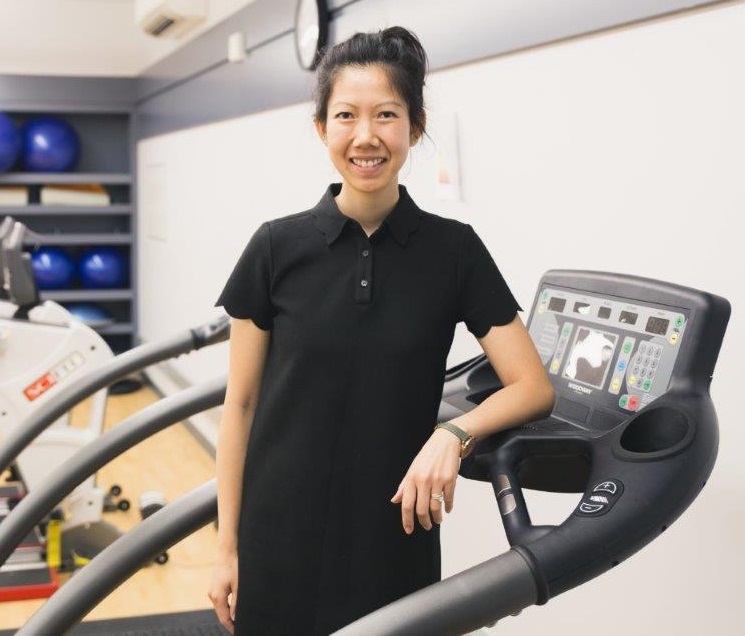
Spring 2025
Inside this Issue
Editor's Note

It’s been an absolute pleasure serving you as the Editor-in-Chief of Outlook for the past 3 years. As my term ends, I would like to thank all the SIGs, councils, Committees, and SBM members for their contributions to Outlook. It is because of these contributions that we were able to have such diverse and meaningful content in every issue focused on professional development, alternative career paths, career development and mentorship, student/trainee perspectives, new research directions, and of course the inaugural climate change and health corner.
Moving Ahead in Times of Disruption: Perseverance to Maintain Progress on Climate Change Research

We are living in a unique time in history with dramatic and sudden disruptions to availability of public data, connections with our colleagues at the national (e.g. NIH) and international (e.g. WHO) level, draconian cuts to federal scientific research funding, and targeted work interruption in the areas of climate change and health inequities. Things are evolving rapidly, but some elements remain clear…uncertainty and change.
Step Up: Creating a Culture of Physical Activity at Conferences

We are gearing up for the Society of Behavioral Medicine's (SBM) 46th Annual Meeting & Scientific Sessions in San Francisco, CA, March 26 - 29, 2025. Though SBM has incorporated physical activity into meetings for years, we want to make it an even more active conference for people of all abilities!
Smoking Rate Reduction: Progress, Rural and Appalachian Disparities, and the Road Ahead

The prevalence of cigarette smoking among U.S. adults has decreased significantly over the past several decades, reaching an all-time low of 14%.1 This progress, however, has not been evenly distributed, with rural areas, such as those in Appalachia, continuing to experience disproportionately high smoking rates.2 In some counties, smoking rates remain as high as 33%, comparable to national averages seen decades ago.3
Period Politics: Policies to address Period Poverty

Period poverty is defined as the lack of access to affordable, safe menstrual products.1 While several states have legislation that ensures people have access to affordable menstrual products, such policies are missing in many states and at a national level.
Social Determinants of Health at the Population-Level: A Geospatial Success Story

Population-level health disparities are inextricably linked to inequities in “the conditions in which people are born, grow, work, live, and age, and the wider set of forces and systems shaping the conditions of daily life.”1 Referred to as social determinants of health (SDOH), these conditions include access to sufficient amounts of healthy food, quality education, health care, safe neighborhoods, economic earning potential, and enriching social communities. Social determinants of health are upstream factors influencing population-level health outcomes and can be either protective or risk factors.2
Long-Acting Injectable Pre-Exposure Prophylaxis (LAI PrEP): Barriers to Innovative HIV Prevention in the United States

An estimated 31,800 people acquire HIV every year in the United States (US) [1]. The Ending the HIV Epidemic in the US (EHE) initiative aims to reduce new HIV infections by 75% by 2025 and 90% by 2030 [1, 2]. Curbing HIV involves public health interventions (e.g., condom promotion and rapid HIV testing) and novel medical interventions, including treatment-as-prevention (TasP) and pre-exposure prophylaxis (PrEP).
Many Twists and Turns: Successfully Navigating an Academic Career as an Early-Stage Investigator

In this Outlook article, I had the great pleasure of interviewing Dr. Jaimi Allen about her experiences as an Early-Stage Investigator. I hope you will enjoy her insightful comments.
Advancing Health IT and Behavioral Medicine: SBM’s Partnership with the Healthcare Information and Management Systems Society (HIMSS)

Digital technologies are widely used in the management of health conditions and are increasingly used by behavioral scientists in health research. The Society of Behavioral Medicine (SBM) has a sizable community of scholars who study topics related to digital health solutions, including academic scientists, clinicians, and behavioral medicine experts who work in industry settings like digital health companies. HIMSS, on the other hand, is a global leader in healthcare technology, with a focus on digital health transformation, interoperability, and healthcare business and management.
Connecting Behavioral Scientists in Industry: A Look at the Past and Future of the Industry Connections Committee

In 2025, the Industry Connections Committee (ICC) celebrates its third anniversary of highlighting the voice of SBM members working in industry settings. Undoubtedly, more behavioral scientists are launching careers outside of academia1; almost 100 SBM members work in industry, and the ICC has grown to 22 members. We asked committee members Amy Bucher, Leanne Kaye, Robin Anthony Kouyate, and chairperson Cynthia Castro Sweet to reflect on the ICC’s journey and future.
Insights and Reflections on Career Development Awards: Challenges, Benefits, and Institutional Support

This conversation is an in-depth follow up to the webinar titled, “Navigating the Uncertainty and Opportunity of Training and Career Development Awards.” The Scientific Education Council sat down with a few of the presenters for more insights on Career development awards (CDAs).
New Articles from Annals of Behavioral Medicine and Translational Behavioral Medicine
Awards, Honors and Inclusions
President's Message: Choose Community

On January 7, 2025, Dr. Vivek Murthy published “My Parting Prescription for America.” In his nearly 10 years as Surgeon General, Dr. Murthy spent a lot of time talking to the public and gathering information that led to the insights in his “parting prescription.” I was fortunate to see him speak when he came to UPMC Health Plan in Pittsburgh, where I work. During his visit he spent time at the UPMC Health Plan Neighborhood Center, a space the Health Plan opened in 2023 in Pittsburgh’s East Liberty neighborhood where anyone can walk in to receive virtual health care, workforce development assistance, food from a food pantry, and other social services with on-site childcare available during the visit.
